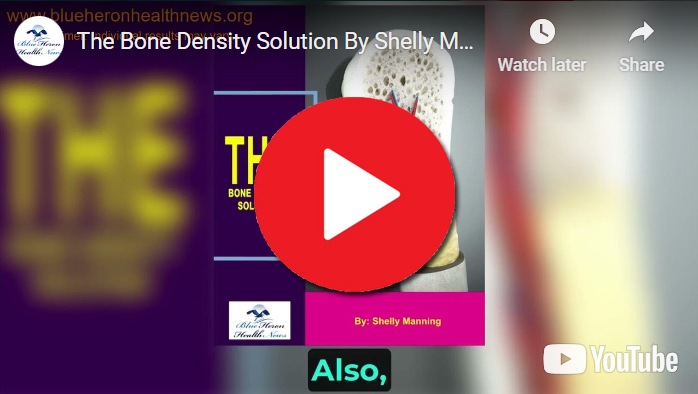
The Bone Density Solution by Shelly Manning As stated earlier, it is an eBook that discusses natural ways to help your osteoporosis. Once you develop this problem, you might find it difficult to lead a normal life due to the inflammation and pain in your body. The disease makes life difficult for many.
What support networks are available for individuals with low bone density and their families in Australia?
In Australia, individuals with low bone density and their families have access to a variety of support networks and resources designed to provide information, emotional support, and practical assistance. These resources can help manage the condition and improve quality of life. Here’s an overview of the available support networks:
1. Medical and Health Services
General Practitioners (GPs) and Specialists
- Primary Care Physicians: GPs can provide initial diagnosis, ongoing management, and referrals to specialists.
- Endocrinologists and Rheumatologists: Specialists in conditions affecting bones, such as osteoporosis, offering expert care and treatment plans.
Public and Private Hospitals
- Osteoporosis Clinics: Many hospitals have specialized clinics focusing on bone health, providing comprehensive care and management.
- Bone Density Scans (DEXA): Available through public hospitals and private imaging centers to monitor bone density.
2. Support Organizations and Groups
Osteoporosis Australia
- Educational Resources: Provides information on bone health, prevention, and management of osteoporosis.
- Support Groups: Offers access to local support groups and online communities for sharing experiences and advice.
- Helpline: A phone service providing information and support from trained volunteers.
Arthritis Australia
- Resources: Offers resources and support for individuals with osteoporosis and other musculoskeletal conditions.
- Support Networks: Connects individuals with local support groups and services.
Chronic Illness Alliance
- Advocacy and Support: Focuses on improving the quality of life for people with chronic illnesses, including those with low bone density.
- Resources: Provides information and advocacy services.
3. Online Communities and Forums
Health-Related Forums
- Online Support Groups: Websites like HealthUnlocked and specific Facebook groups offer platforms for individuals to discuss their condition, share experiences, and offer support.
- Condition-Specific Forums: Dedicated forums for osteoporosis and bone health where members can ask questions and provide mutual support.
4. Educational Programs and Workshops
Local Health Services
- Workshops and Seminars: Community health centers often host educational workshops on bone health and osteoporosis management.
- Exercise Programs: Programs designed to improve bone health and prevent falls, often run by physiotherapists.
University and Research Institutions
- Public Lectures: Universities and research institutions may offer public lectures and seminars on the latest research and treatment options for osteoporosis.
5. Financial and Practical Assistance
Government Programs
- Medicare: Provides coverage for bone density scans and consultations with healthcare providers.
- Pharmaceutical Benefits Scheme (PBS): Subsidizes medications used to treat osteoporosis.
Non-Profit Organizations
- Financial Aid: Some organizations may offer grants or financial assistance for treatment and medication costs.
6. Physical and Mental Health Support
Physiotherapy and Occupational Therapy
- Rehabilitation Programs: Tailored exercise and rehabilitation programs to improve mobility and strength.
- Adaptive Equipment: Advice on and provision of equipment to support daily activities and enhance safety.
Counseling and Psychological Services
- Mental Health Support: Access to counseling and psychological services to help manage the emotional impact of living with low bone density.
- Support for Families: Counseling services that include family members to help them understand and cope with the condition.
7. Educational Resources and Publications
Books and Guides
- Educational Materials: Books and guides on managing osteoporosis, available through libraries, bookstores, and online retailers.
- Brochures and Pamphlets: Available from healthcare providers and support organizations.
8. Advocacy and Awareness Campaigns
Awareness Initiatives
- National Awareness Days: Participation in events like World Osteoporosis Day to raise awareness and promote bone health.
- Advocacy Campaigns: Support from organizations like Osteoporosis Australia to advocate for better policies and funding for bone health research and services.
Conclusion
In Australia, individuals with low bone density and their families have access to a comprehensive range of support networks, including medical services, support organizations, online communities, educational programs, and financial assistance. These resources can provide vital information, emotional support, and practical help to manage the condition effectively. Engaging with these support networks can improve the quality of life and well-being for those affected by low bone density.
The Bone Density Solution by Shelly Manning As stated earlier, it is an eBook that discusses natural ways to help your osteoporosis. Once you develop this problem, you might find it difficult to lead a normal life due to the inflammation and pain in your body. The disease makes life difficult for many.
